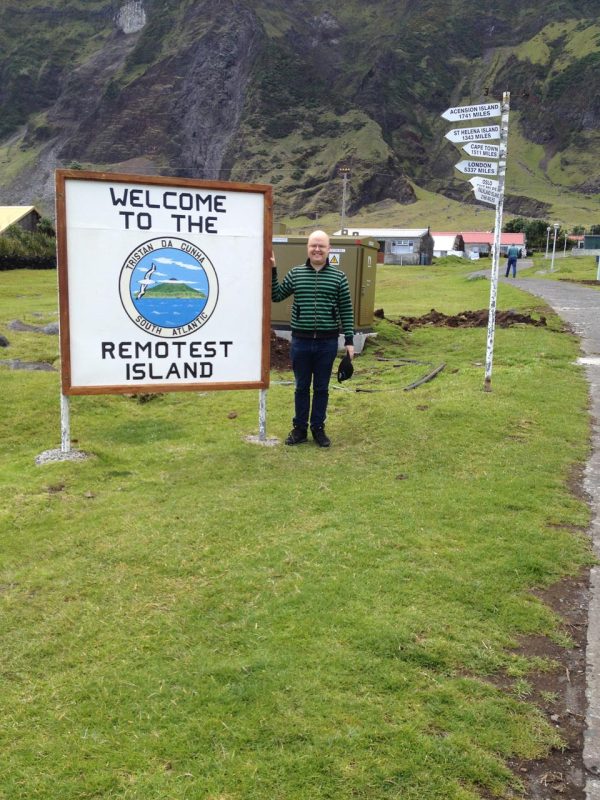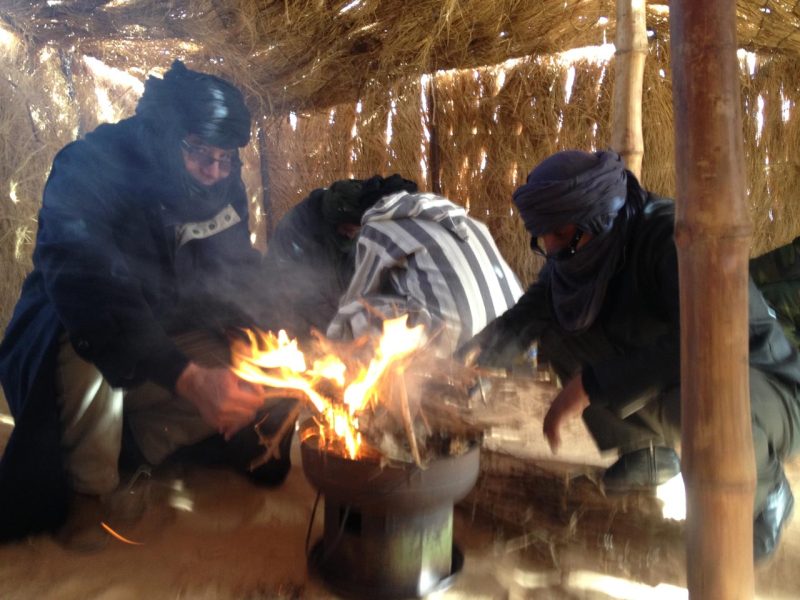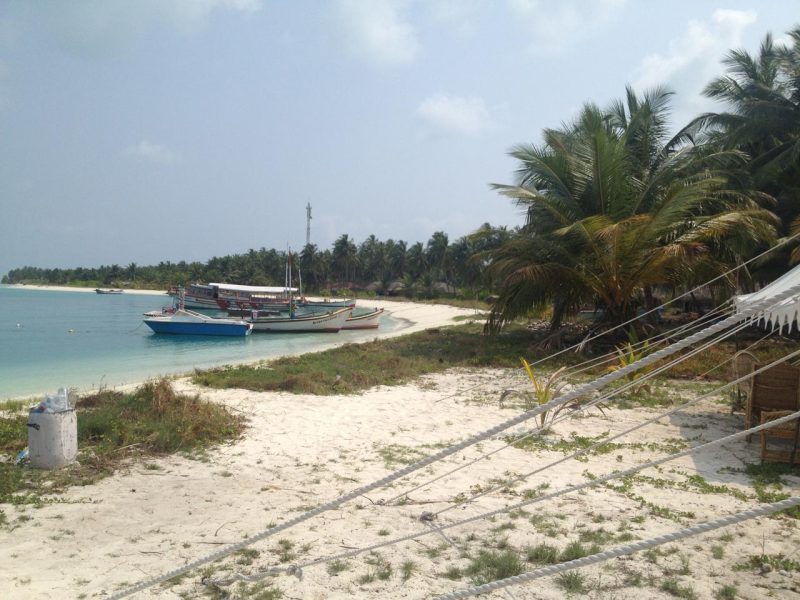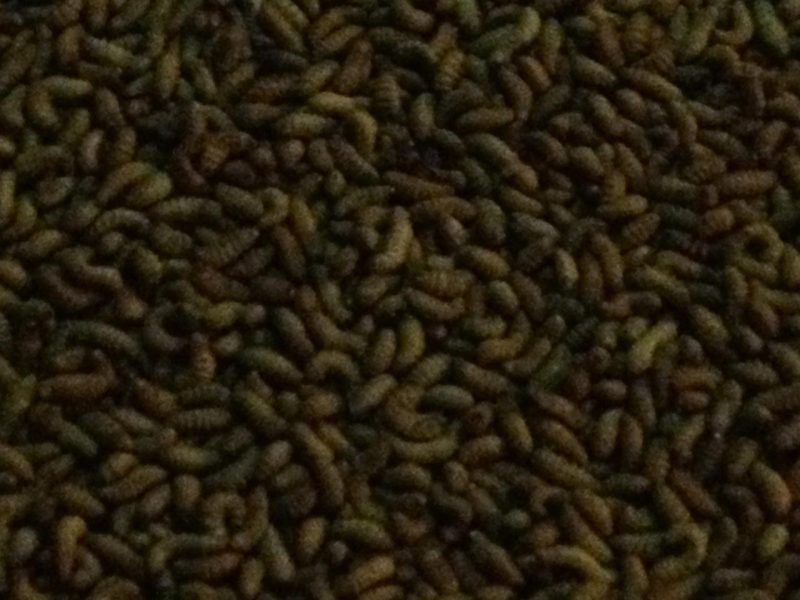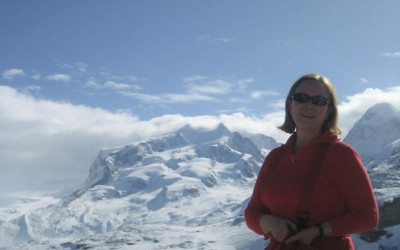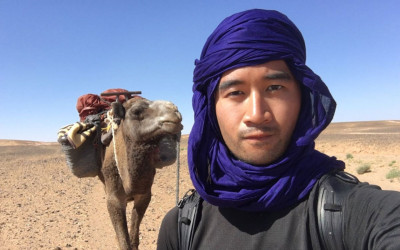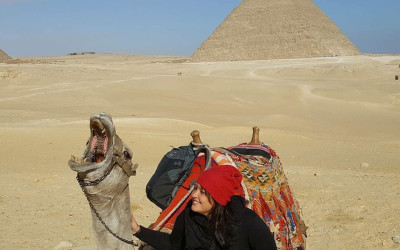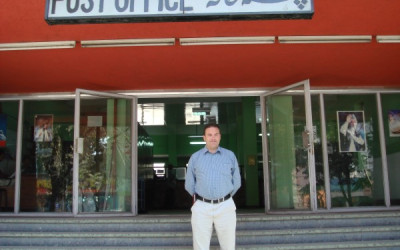“Now that I have visited every country in the world I have started to go back to the big countries, where there is more to discover, as well as the places I liked on my first visit.”
One of our best travelled members is also Markus from Sweeden. He, too, visited all the 207 countries on the TBT list. The interview was mad a while ago so some of the questions could seem a bit “old” already but nevertheless, Markus has many interesting stories to tell!
Kristina: First of all, I would like you to briefly introduce yourself – who you are, where you’re from, what you do, how many countries you visited so far and where’s your favourite place to be?
Markus: I was born in Northern Sweden, Piteå, and have always been fascinated by different cultures and traditions. My first trip outside the Nordic countries did not happen until I turned 13, but after that my love for travel was born, and by 15 I did my first solo trip to China. Last year I visited Canada as the last of TBT’s 207 countries.
Since I usually travel in clusters of countries Canada was left for last as it is alone in the North of the Americas. I have several favourites, but I especially enjoy the cultures in the Sahel and mountainous regions like the Himalaya and the Andes. Today I work for the Swedish Ministry for Foreign Affairs with international trade policy.
K: You are in the “I-visited-every-country-in-the-world” club. Tell us which country you visited last and when was it? Tell us an anecdote from this country.
M: My last visit was to India about a week ago. Now that I have visited every country in the world I have started to go back to the big countries, where there is more to discover, as well as the places I liked on my first visit. My anecdote is from travelling in a minibus from Dimanpur in Nagaland to Imphal in Manipur, a trip that normally lasts about eight hours. After five hours we were stopped by the police saying a protest group had blocked the only road. Only after waiting for seven and a half hours we were allowed to continue. Nobody was upset or complained during the wait. When we left I asked a local traveller what the people that blocked the road were protesting. “Who knows”- he answered, “we have a lot of people that are unhappy with different things”. In Sweden people would have called on the police to intervene after five minutes and the protest would have been first page news.
K: According to your short description on your TBT profile, you did your studies in Minnesota, Switzerland and Guatemala. These are three very different parts of the world. What did you learn in each of these places (a specific thing you could say you learned in each of the places)?
M: I chose the destinations mainly to become fluent in their respective languages. I learned much from all of them, generally how do adopt to different cultures and customs. In the US, I appreciated the “can do”-attitude. In Guatemala I appreciated how joyful people could be even though many lacked most material possessions. In Switzerland the on-time precision of meetings and trains really impressed, although I had a hard time with some of the conservative views. There was, for example, a referendum in the canton where I lived about a proposal allowing grocery stores to stay open after 5 pm and for a few hours on Saturdays that was turned down. I felt like I had to plan my entire day according to the opening hours of the grocery stores.
K: Your work took you to China and Nigeria. Again, very different parts of the world. How long did you live there? Did you have any difficulties in adapting to the local life there?
M: I lived for three years in each of the two countries. Both were good bases to visit surrounding countries. To be honest I was quite sheltered when working, but when travelling around the country I got to know everyday people. I had different problems in the two countries. In China pollution and censorship annoyed me the most, in Nigeria the lack of infrastructure (e.g. electricity), terrorism, poverty and the ever present corruption.
K: Apart from your passport, plane ticket, toothbrush and the usual essentials, what do you always take with you when you travel?
M: I have a short rhyme (in Swedish) that I repeat to myself whenever I depart from somewhere: Passport, tickets, money and telephone, since that, in my view, is really all one needs to travel, everything else can be bought at the new location. On my first solo trip to China my airline lost my luggage, which never arrived, so managing a month with nothing but passport, money and tickets was how I first realized that there are a few “must-haves”.
K: You said you like to try local delicacies when you travel. What was the weirdest thing you ate so far and how was it? Did you ever try anything that you really didn’t like?
M: To be honest I do not like most of the exotic things I have tried. A few of the better ones have been snakes and fried grasshoppers. I have attached a picture of one of my latest delicacies, crawling, fat worms in Nagaland in India. Fugu, poisonous blowfish, is one of the weirdest things I have eaten. It was not very tasty, but I really enjoyed the atmosphere at the restaurant – saying “bansai” with my friends before swallowing and hoping not to drop dead. In Japan I also got to visit a three star restaurant, my only one so far, which was quite an experience. We were only four dinner guests with six chefs preparing the food in front of us.
K: Are you an adrenaline lover? Have you ever tried any dangerous activities?
M: I have travelled in dangerous regions, but usually quite well prepared with local guides and sometimes even armed bodyguards. I noticed that my travel insurance does not cover bungee-jumping or skydiving accidents, so some might consider that dangerous activities. In my view bungee-jumping is much worse than skydiving since one can see the ground so clearly. In short, I do not actively look for dangerous situations, but neither do I shy away from them.
K: Where do you want to live when you retire?
M: I have not thought that far yet. To be honest I think I would get bored staying in just one place, even after retiring, but I would probably settle where my family has settled and use that as a base for excursions.
K: What destination had the biggest impact on you? Which one shocked you the most / amazed you the most?
M: One of the downsides of travelling extensively is that it gets harder and harder to be shocked/amazed. If something is not the biggest/smallest/fastest/most expensive, etc. I sometimes find it hard to motivate myself visiting. I usually mention destinations cut off from the surrounding world as the most interesting, e.g. DPRK or Bhutan, although I am eternally grateful I was not born in any of them.
K: What do you prefer when you’re travelling – visiting towns and cities, urban areas; or do you prefer nature and small villages?
M: One of my most scary experiences was a week in the Amazon jungle. I was afraid the whole time of both plants and animals since they all seemed to be poisonous. I enjoy mountains and the desert, though, but if I had to choose I prefer cities to the countryside. Perhaps growing up on the countryside has made me appreciate what cities can offer.
K: What’s your next travel destination?
M: In the middle of May I am travelling to Russia for an extensive trip around the Western parts of the country.
The photos in the interview are from Markus’ private collection.
